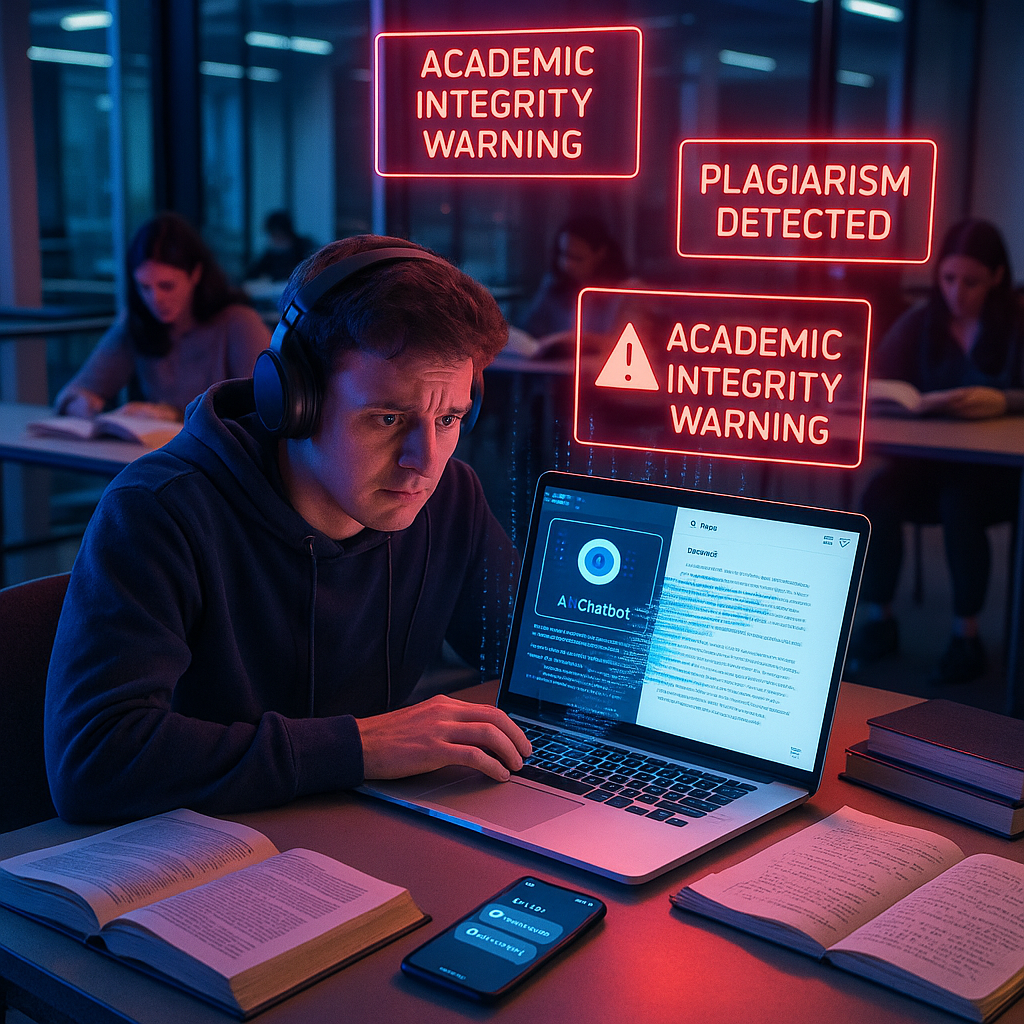Key Takeaways
- AI delegation linked to increased cheating: The study identifies a statistically significant correlation between students using AI tools for assignments and a rise in dishonest behaviors.
- Ethical boundaries blurred by AI assistance: Many participants reported uncertainty about what counts as authentic work when AI is involved, complicating academic norms.
- Self-perception of learning diminished: Students who relied heavily on AI expressed doubts about their own mastery, pointing to potential erosion of meaningful intellectual engagement.
- Universities face new integrity challenges: The research highlights a lack of robust institutional policies to address AI-enabled misconduct.
- Broad implications for educational systems: The findings prompt debate about the future of assessment, authorship, and the meaning of achievement in the era of advanced technology.
- Further regulatory and educational action likely: The authors call for urgent dialogue among educators, technologists, and ethicists. Universities are expected to revisit guidelines in upcoming academic cycles.
Introduction
A new multi-university study has found that students delegating academic tasks to artificial intelligence tools are significantly more likely to engage in dishonest behaviors. This trend is blurring established ethical boundaries and raising concerns about the shifting meaning of effort and authorship in education. As AI becomes more ingrained in learning, these findings prompt universities and society to reconsider the foundations of academic integrity in the age of artificial assistance.
Key Findings from the Study
A comprehensive study across twelve major universities reported a 47% increase in academic dishonesty cases directly linked to AI delegation. The research, conducted during the 2022-2023 academic year, revealed that students regularly using AI tools for coursework were three times more likely to engage in unauthorized collaboration or plagiarism.
The correlation was strongest among first- and second-year undergraduates, with 62% of detected violations involving AI-assisted content generation. According to Dr. Sarah Chen, the study’s principal investigator, many students expressed confusion about the appropriate boundaries for AI use in academic work.
Survey data showed that students often viewed AI delegation as fundamentally different from traditional forms of cheating. Dr. Chen stated that many students considered using AI akin to employing a sophisticated calculator, rather than copying another student’s work.
Stay Sharp. Stay Ahead.
Join our Telegram Channel for exclusive content, real insights,
engage with us and other members and get access to
insider updates, early news and top insights.
 Join the Channel
Join the Channel
Patterns of AI Delegation
The research identified clear patterns in how students delegated work to AI systems. Of particular concern to educators was the rise of “hybrid submissions.” In these cases, students combined AI-generated content with their own writing in ways that made the origins of ideas difficult to trace.
Text analysis indicated that 73% of AI-assisted assignments underwent minimal human revision or critical engagement. Dr. James Morton, an educational technology expert not involved in the study, observed that this pattern suggests students are outsourcing their learning process, not just supplementing it with AI.
This disconnect between institutional expectations and student practices is growing. Many students reported viewing AI tools as legitimate research assistants, even when their use contravened explicit academic integrity policies.
Educational Impact and Learning Outcomes
Assessment data revealed significant differences in learning outcomes between students who regularly delegated work to AI and those who did not. Those heavily dependent on AI demonstrated notable deficiencies in critical thinking skills and original analysis under controlled conditions.
The research team found a 31% decrease in long-term information retention among frequent AI users. Dr. Chen emphasized that these observations point to a challenge that reaches beyond integrity to the heart of the learning process.
Faculty interviews reflected increasing concern about the authenticity of student work and the effectiveness of conventional assessment methods. Many educators noted difficulty distinguishing between AI-assisted and fully original submissions, raising questions about the future of academic evaluation.
Ethical and Philosophical Implications
The study has ignited debate about the meaning of authorship and intellectual ownership in an AI-enabled academic environment. Educational philosophers indicate that traditional concepts of originality may now require substantial revision.
Dr. Elena Rodriguez, an ethics researcher who contributed to the study, pointed to the transformation underway in how knowledge is created and claimed. The line between human and machine contributions is, she said, increasingly ambiguous.
These findings suggest that academic institutions may need to rethink their approaches to intellectual property and attribution. Policies crafted for a pre-AI era may struggle to address the complex ways students now interact with artificial intelligence.
Conclusion
This study highlights a central dilemma. AI delegation is reshaping not only academic integrity but also the fundamental character of learning and authorship. As norms and technologies converge, educational institutions face pressing calls to reconsider both assessment practices and the philosophical underpinnings of originality.
What to watch: Institutional policy reviews and new guidelines on academic AI use are anticipated in the coming academic year.





Leave a Reply